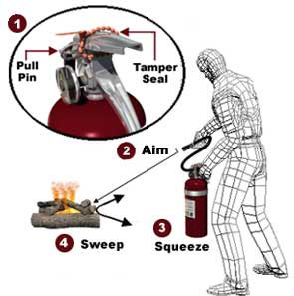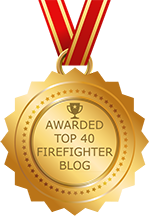May 11, 2013 by Total Fire and Safety
Effective Training
We can simulate A, B and C class fires at four difficulty levels and have the capability of grading trainees on their performance. Hundreds of trainees can be trained in a single day without weather restrictions, EPA environmental issues or the mess of using conventional training methods.
Safe Atmosphere
Total Fire & Safety Inc. incorporates the latest technology, utilizing digital flames with laser or water training extinguishers.
Program Advantages
- Makes training to OSHA requirements safe and easy
- Allows training to take place entirely indoors: in the conference room, hallways, or in the actual work environment where the emergency would potentially take place
- Has the ability to grade users, making it easy to monitor improvement and proficiency
- No toxic waste or extinguisher residue left behind after training is complete
- A burn permit is not required while eliminating the hazards associated with conventional fire extinguisher training.

Category: Uncategorized Tags: Extinguishertraining, fireextinguisher, Fireextinguishertraining, firesafetytraining | Comments Off on Fire Equipment Training
May 8, 2013 by Total Fire and Safety
Properly installed and maintained automatic fire sprinkler systems help save lives. Because fire sprinkler systems react so quickly, they can dramatically reduce the heat, flames and smoke produced in a fire.
Superior field service is a fundamental strength of Total Fire & Safety and has made us the preferred service provider for thousands of customers. We offer the full range of scheduled fire sprinkler inspections and maintenance services, as well as 24-hour/365-day emergency service.
We service sprinkler systems in commercial structures. We also test fire hoses. Our technicians are highly trained and state certified. Our service trucks carry everything needed to get the job done right. Various parts of fire sprinkler systems must be tested at different intervals per NFPA 25.
Below are some of the items tested during an inspection:
- Are systems functional upon arrival?
- Are gauges good and reading correctly?
- Are main control valves open?
- Do control valves operate through full range?
- Valves are lubricated as needed.
- Are there extra sprinkler heads in cabinet?
- Is the building heated in wet sprinkler area?
- Are the water motor and gong functional?
- Is the electric alarm test satisfactory?
- Are the alarm devices functional & free of damage?
- Is stock and storage 18″ below the sprinklers?
- Alarm time delayed in seconds?
- More testing depending on system type
Category: Fire Safety, Sprinkler Systems, Total Fire and Safety Tags: commercialfiresprinkler, firesafety, Firesprinkler, firesprinklerinspections, lifesafety, sprinkler, sprinklerinspections | Comments (1)

 Facebook
Facebook
 Instagram
Instagram
 LinkedIn
LinkedIn
